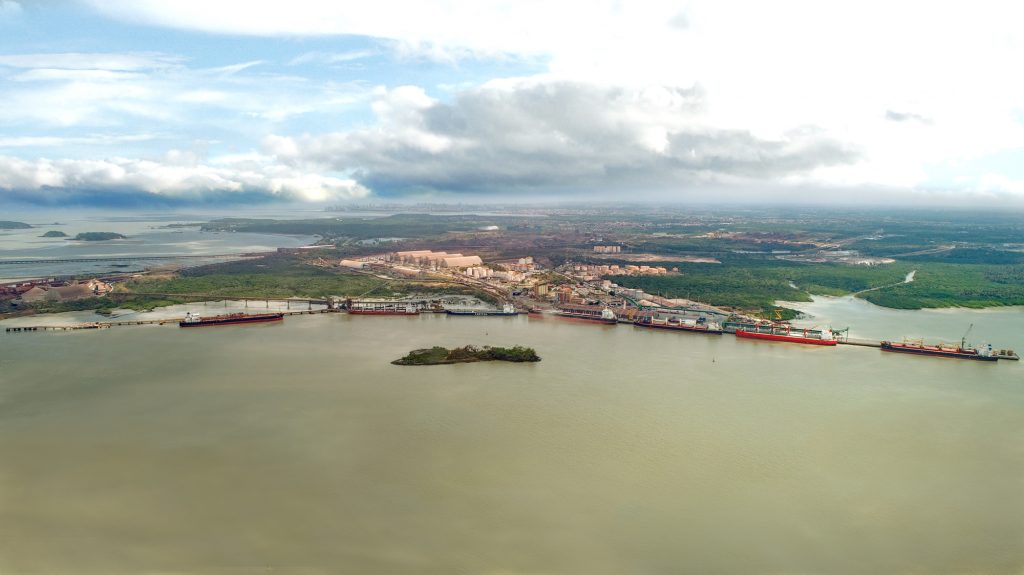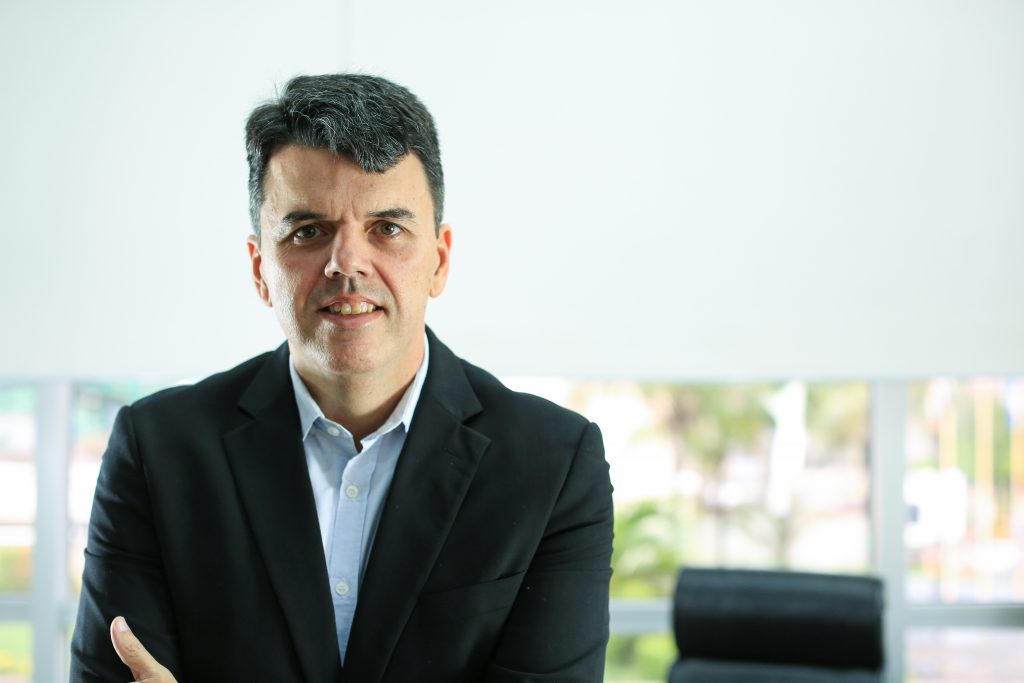São Paulo – Modernization work at the Port of Itaqui in Maranhão, Brazil will enable added trade with the Arab countries. Investment is underway in fertilizer shipping and refrigerated containers, and facilities are now available for livestock exports. Maranhão Port Authority (Emap) chairman Ted Lago discussed the matter with ANBA.
Lago describes the port as unrivaled when it comes to competitiveness in trade with Africa, due to its location as well as possibilities in terms of markets, shipping ability and facilities. “Considering the region’s structure and profile, we will be the most competitive port for Africa.” North Africa Africa is home to the Arab countries Egypt, Morocco, Tunisia, Mauritania, Sudan, Algeria, Libya, Somalia and Djibouti. The seaport is set in a grain-producing area that caters to some 50 million consumers.
Expansion work at the Port of Itaqui’s fertilizer terminal will enable it to handle refrigerated shipping containers. This will allow for the export of meats, which Brazil supplies in large amounts to the Arab countries. According to Ted Lago, the Port is already prepared to ship out livestock, another staple of Brazilian sales to the Arab world.
“By November we will conclude the most state-of-the-art fertilizer terminal in Latin America,” he told ANBA. Most of the fertilizer shipping to Brazil currently comes in at the ports of Paranaguá, Paraná and Santos, São Paulo. Authorities in Maranhão are looking to change this picture.
The Port of Itaqui can currently accommodate 2 million tons’ worth of fertilizer. The expansion will increase that to 3.5 million. The Port’s location makes it a competitive supplier to crops in grain-producing states across the Midwest and North. Lago argues that fertilizer arriving at the facility can be competitively supplied from North Goiás on up.
Railway investment is also ongoing. This means that by July 2021, fertilizer will also get shuttled on trains to producing areas. For the time being, transportation is handled by trucks.
Lago believes that Brazil’s Northern Arc is where grain farming is booming right now. That comprises Amazonas, Amapá, Maranhão, Roraima, and Pará. Maranhão soy crops will exceed 1 million hectares for the first time in the 2020/2021 season. Lago explains that in the Northern Arc, a shift is going on towards intensive livestock farming in degraded areas. The ensuing animal feed needs paves the way for high-yield grain in those lands, and that requires fertilizer.
Refrigerated shipping containers
Some three years ago, the Port of Itaqui invested in a facility featuring 50 power outlets for refrigerated containers, with the use of generators allowing it to accommodate as much as 150 containers. The ongoing overhaul will bring that up to 450 outlets in 12 months’ time. “Once the work is done, we’ll be one of the premier ports for refrigerated containers. It will be a complete change of scale.”

The goal is to make Itaqui into a hub for processed, for-export meat produced in Maranhão as well as Tocantins. “Much more than a grain exporting facility, we want to be an exporter oif protein, whether it be plant-based, in the case of grain, or animal-based, i.e. processed meat.”
When it comes to imports, the Port takes in mostly fuel and fertilizer. The fuel comes in from North America, and the fertilizer, from Eastern Europe, Morocco and the UAE. The primary export product is grains, which is what farming revolves around in the surrounding area. Asia is the premier destination, but maize also ships to Arab countries such as Egypt and Morocco, as well as parts of Europe. Wood pulp also gets shipped to North America.
The grain shipping through Port of Itaqui – mostly soy and maize – is sourced from Brazil’s North and parts of the Midwest. “We handle cargo from seven Brazilian states,” Lago says. From March to September, when the soy crop peaks, some 1 million tons of grain a month get shipped from Itaqui.
The Port is also Brazil’s third biggest for the shipping of fuel. Its depth allows it to accommodate large-sized vessels. Some of the fuel will get transshipped onto smaller vessels before heading out to other ports across Brazil. “It’s a trifecta: grain, fertilizer and fuel always go together, because agribusiness is also very fuel-intensive, both the farming and the harvest.”
In tandem with the Arab Chamber
The Port of Itaqui is a member of the Arab Brazilian Chamber of Commerce (ABCC). It will be one of the exhibitors at the Economic Forum Brazil & Arab Countries, which the ABCC will host in virtual form from October 19 to 22. The seaport has been working closely with the ABCC for a few years now to get more incoming and outgoing goods in Arab-Brazilian trade.
Lago believes that the ABCC can help the port connect the dots in supply and demand, and he argues that the organization’s networking ability is important in connecting with Arabs. The port will showcase its facilities during the Forum. “To underscore that region not only as an exporter, but also as a buyer, not only of fertilizer, but also other products that the Arabs can offer. We have a market of 50 million people in the port’s perimeter.”
On many occasions, the Port of Itaqui has engaged in efforts to build ties with the Arab countries, by having delegates travel and by staying in touch with diplomats in Egypt, Morocco and the UAE. Ted Lago explains that the presence of Arab immigrants is strongly felt in Maranhão. “We are very close with them. We have many families: Abdallah, Maluf, Murad. They’re part of the history of Maranhão.”
Translated by Gabriel Pomerancblum




